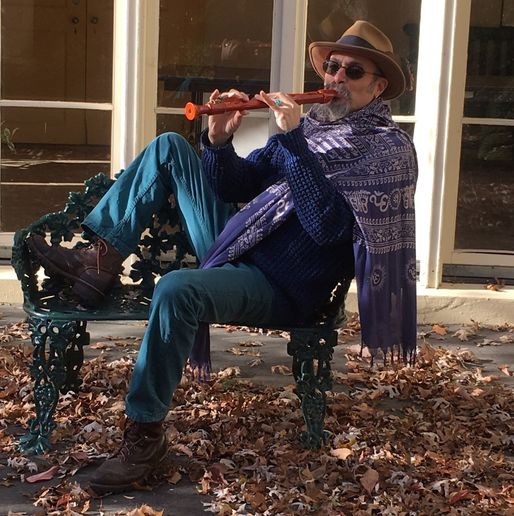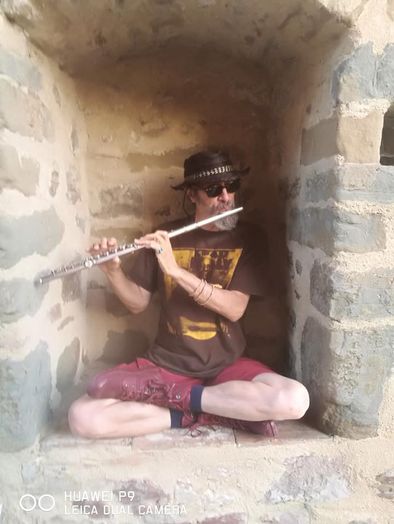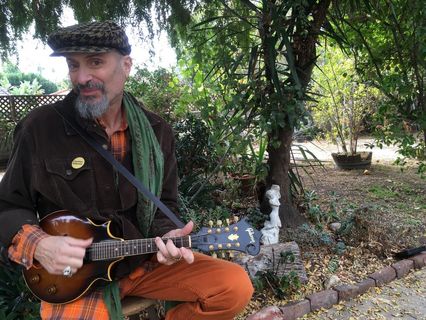
There is so much digital media being utilized today that often one may get a bit bored and want to see things in print on paper. I do.
So, the other day I was strolling down memory lane, so to speak, thumbing through my shelves of literature and was so wonderfully calm. It was that experience of engaging every sense you own that made me so calm. I was looking at the bounded covers, touching the textures of each book’s material, and hearing the crispness tap in my ears as I turned the pages. The only two senses that was a bit different were smell and taste.
I did indeed take a sniff, or shall I say whiff, of the books and it takes me to some memory of college and doing research in the stacks. And the taste, well, I do not taste the books – ha, ha, no, instead, I always have a cup of coffee or tea next to me, or sometimes a glass of scotch to taste as I read and ponder.
I know this may be reading as a journalist’s rant, but what I am getting at is how those non-digital books keeps us living – it keeps us engaged. And what makes those books so engaging are the words printed on the pages by the creative authors, playwrights, and poets that compose those collected storylines. Indie music does the same thing for the masses.
My close friends and readers know that there are two things in the arts that really gets me pumped up or calmed out to a chill-mode, and those are books and music. Both aesthetics vibe off each other, but rarely do they meet within one artist’s volume of work. So, when I was introduced to John Kruth’s work, you know I was HAPPY!
Here is a man who is not only an established poet and author of many books and poems/prose, but also a singer/songwriter/multi-instrumentalist – a man who can honestly demand centerstage at a smoke-filled poetry reading in the Village, a seminar, or concert arena.

In this review, I will be exploring the music of John Kruth, in particular, his latest “Forever Ago.”
When I listen to “Forever Ago,” I hear Folk music that is Modern and infused with elements of many genres. "Forever Ago" explores the theme of life's experiences being the actual journey with the destination being wherever you are now.
Fourteen tracks build this collection:
- Picnic in the Sun
- Goodnight Sylvia
- Forever Ago
- Waiting by the Window
- The Wild Birds of Heaven
- Mr. Crow
- Vacation
- Drivin'
- Share the Failure / The Grinning Reaper
- Checkers with My Cat
- Christmas Eve
- Blonde
- The Old Communist
- Hunting for Water
While each track is like a chapter within the artist’s journal, I wanted to focus on just seven tracks to share Kruth’s theme within the music.
Let’s begin with the opening track “Picnic in the Sun.”
Very clever to open with “Picnic in the Sun” as this track is very animated with symbolism. The lyrics speaks about making good with what you have even when the situation is not so good – like a failed relationship or a breakup. Kruth’s Soft-Rock vocals subtly carries this track and sings: I wish I could do likewise and erase you from my mind / picnic in the sun / no shade to be found / table for one for a lonely fool from out of town. Lacing the track with an accordion, mellow guitars, and mandolins sets a scene of tranquility no matter the backdrop (or circumstance) of the listener. Using mind art is a great songwriting tool to show how practicality and positivity keeps the globe turning.
The second track “Goodnight Sylvia” is light in its instrumentation but dark in its lyrical story. Giving a snapshot of the suicide of Sylvia Path (Poet) focuses the listeners on the reality of depression and paranoia. Like a musical farewell note to a fellow writer, this track is universal with its topic and illustrates how sadly sometimes life’s journey ends at a detour of despair.
One of the most beautiful tracks is “Forever Ago.” The balance between honesty and reality is reflected in the pure soft melodies enveloped with simplistic lyrics and instruments. Once again, less is more. The title track ties up and highlights the entire collection’s theme of one’s journey in life showing how life is not worth living if you have no one to share it with. Kruth sings “what good is Picasso . . . when you’re an ocean away / well, I wanna know, where does the time go, cause it feels like forever, forever ago.” This track is so fleeting and pleasurable with the slow tempo and mandolins tickling the emotions. And the way the hook was produced really does make you ponder on time and how you are spending that time. The addition of the Italian spoken word just highlights the ‘sands in the hourglass’ imagery.
The track with the most texture and soul is “Waiting by the Window” which feature a mandolin played in Gypsy riff. The lyrics depict how one may wait for love and contemplates the thought of a person continuously looking back in life – consciously apprehensive and stuck in a pattern that seems unmovable. The hook “we keep marching in time’s parade,” is a wonderful metaphor and becomes a mood-setter. Loved the climb up and trail down of the melodies.
Next, is the track that stirs the most mystery – the sixth track, “Mr. Crow.”
“Mr. Crow” twists things into another musical direction as it incorporates harmonicas and handclaps merging Folk music to an interesting Dirty South Soul track. The harmonica is very reminiscent of Little Walter’s style of harmonica playing with such Bluesy passion. Another nice twist is Kruth’s more raspy vocal delivery which gives the overall track more swagger and attitude, he sings: big black crow / way up in a tree / hey Mr. crow, tell me what you see / could be my baby flying home to me. Choosing to feature the crow as the principle character for the sixth track was brilliant! Very much like Edgar Allen Poe’s “The Raven,” on this track, the “crow” is seen as a sort of instructor whom the character asks questions and seeks answers. This metaphorical songwriting treatment drives home Kruth's threading theme showing how seeking to have life’s questions answered takes up a lot of time within the journey of life. And on a side note, in pop culture and literature, the crow is one of the most misunderstood birds – some say it symbolizes death, while others feel it symbolizes life. Then, there are some who see them as pests, and others who see them as figures of power. To me, the crow symbolizes the life of an artist – the weary traveler with wisdom, integrity, and solitude seeking a place to rest. And even though a person’s depiction of the crow could be as varied as they come, one thing for sure is the bird’s hearty way of life and fighting spirit. Great choice for a song as this metaphor is far-reaching and everyone and anyone can grab a concept from this one track.
And when you listen to the lyrics of “The Old Communist,” and you place your ear on the mandolin, you are instantly transported to the Mediterranean seeing this story played out. More conversational in his vocal delivery, Kruth sets the mood of the track with these lyrics: Stalin used to be his god / but now he’s taken up the Christ / and dressing like a British fop, but every man must have his vice. As an English Writing grad, I could not help but see the parallel between the message of this track and how it compliments Victorian author, playwright, poet, Oscar Wilde’s quote “The only difference between the saint and the sinner is that every saint has a past, and every sinner has a future.” The 13th track on “Forever Ago” musically exudes such realism and compassion and shows how life’s experiences can change a person, thus reshaping their expected trajectory, and therefore altering the person. I call it ‘natural irony,’ and Kruth illustrates this so well on this track.
The concluding track “Hunting for Water” feature a Synth Pop introduction and spills into a nice infused Folk track that cleverly sews up the music. Kruth’s mellow second tenor / baritone vocal quietly hugs the lyrics that tell the story of a man in search of himself: he went hunting for water / although it was all around him / he went hunting for water / although it was inside him / he sailed his boat around the world hunting for water / he went hunting for water. Varied guitars enhance Kruth’s signature mandolin and adds a euphoric listening experience. The eclectic backing adlibs, world soundscapes, and flute easily becomes the skeletal system to this track. The final track melodically depicts how sometimes we must get lost in order to be found.

What makes a book believable are its facts and the writer’s ability to display the victories and defeats, the joys and pains, the beauty and horrid – Kruth’s music is done in such a creative, honest, way that he was able to illustrate the roads traveled often by touching on topics like: love, pain, starting over, etc., as well as those roads less traveled with topics such as depression and suicide.
After listening to this collection of music, you are left asking yourself “how many songwriter/musicians can tout that they are in both Rolling Stone as a musician and the New York Times as an author? Come on now! Here is a man that has explored many corners of our globe and can teach it to the masses as a professor and put it to music that is understood, modern, and thought provoking. Here is a talent that needs a spotlight!
John Kruth is a polished, learned, artist with a well-rounded assortment of music. This is accomplished by standing in his truth and incorporating different elements into the music. He actually takes you on the journey with him – from the South to the North, East and West. With his music, like life, it is not about the destination being sought after but the journey itself that is paramount, and this soundtrack is instrumented by mandolins, banjos, harmonicas, flutes, guitars, keys, percussions, and little to no synths.
In contrast to some Folk albums where the artists just write about different moods or issues that can become quite boring, one-sided, and more era-driven, “Forever Ago” is full of surprises. There is no dullness with this music – no forcing of hooks or vocal melodies, no clichés put to music, and it is not dry in its composition (musical or lyrical). It is Conceptual and focuses on the message allowing the music to be the vehicle to drive that message home.
Kruth’s music is cathartic and universally accepting – it is one source of music that allows the audience to broaden their minds while listening to great music and complements LIVING!

Visit John Kruth's Wikipedia Page for more info.
